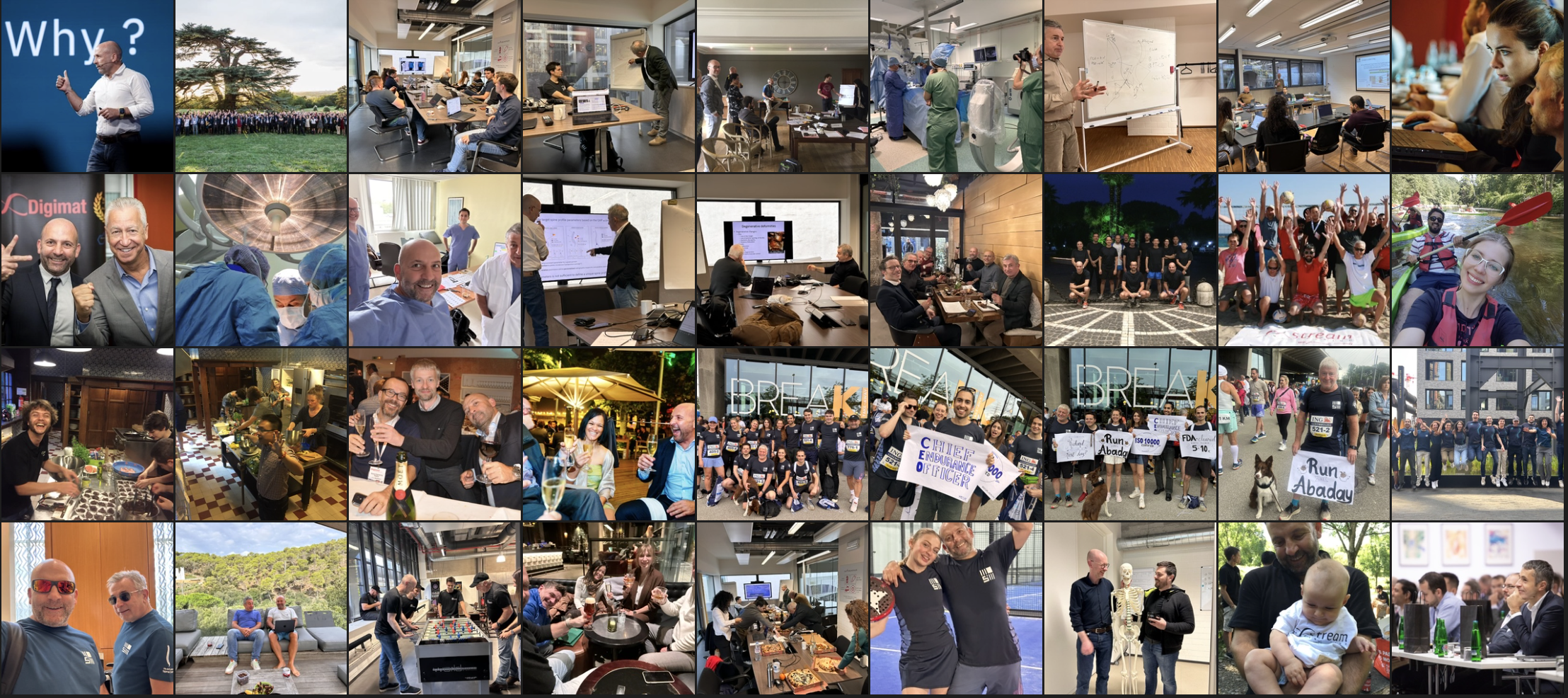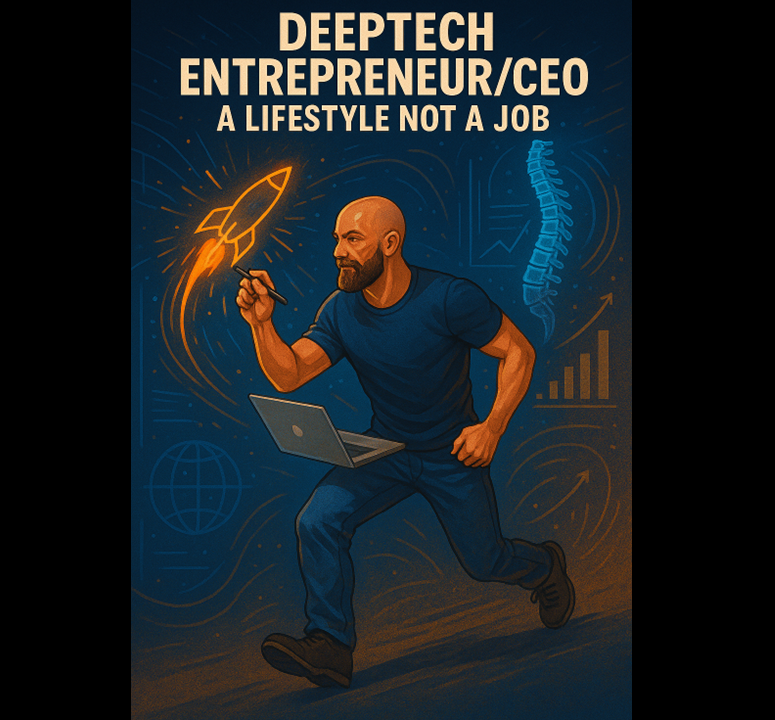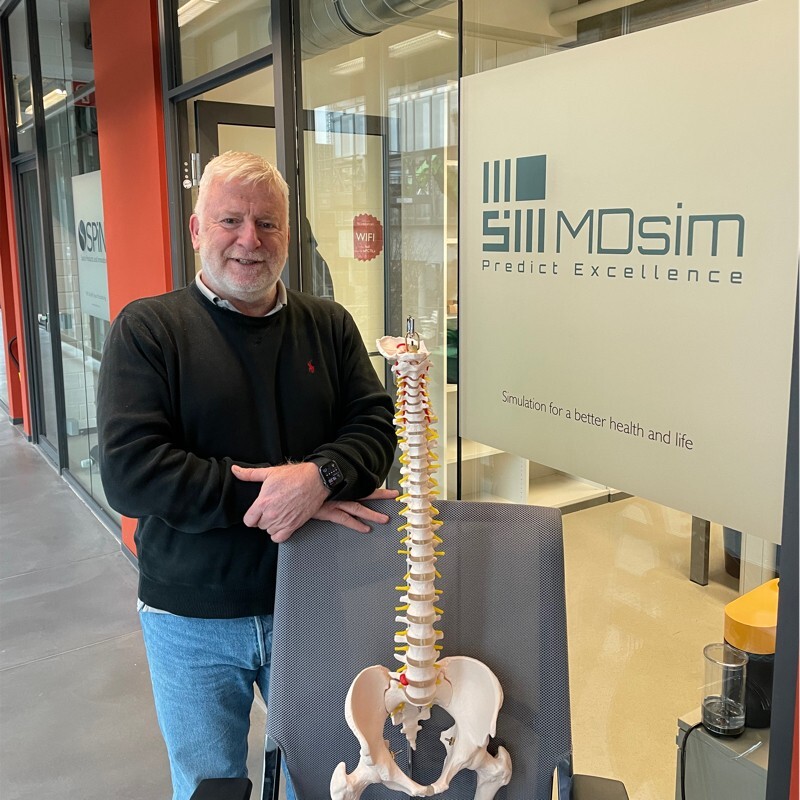
Building a Startup Culture that Lasts…Post-Covid and Across Generations!
Culture is the backbone of every startup. It determines who joins, who stays, how decisions are made, and ultimately whether the company thrives. In my own journey as a founder, I’ve learned that culture is not just a set of rules written on the wall—it’s a lived experience. It’s in how people treat each other, how they talk about their work when no one is watching, and how they handle challenges when things get tough.
Here’s how I build and nurture culture in my startup:
Hiring for Mindset, Not Resume
Skills and years of experience are valuable, but they are not the foundation of a great startup team. In fact, they can sometimes be rigid and hard to adapt. In a startup, everything changes continuously, so the most important qualities I look for are motivation, curiosity, and a willingness to learn. The right attitude and a genuine drive to grow will always outperform static skill sets.
A Relentless “Can-Do” Spirit
For us, nothing is impossible. We combine cleverness, hard work, and deep listening with an obsession for the customer and their problems. This is more than just delivering on contractual obligations—it’s about a moral commitment to our customers and stakeholders. I expect every team member, from the admin assistant to the head of R&D, to embody this motivation and love for the work.
Surround Yourself with People You Enjoy
Building a company is too hard to do with people you wouldn’t want to spend time with outside of work. I make sure to hire people I genuinely enjoy being around. This builds trust, resilience, and camaraderie that extends well beyond office walls.
Trust, Ethics, and Transparency
Trust is the foundation of any lasting culture, and it’s earned over time. We never compromise on ethics. Inside the company, we stay transparent about the why behind every decision. Saying “I don’t know, but I’ll find out” is perfectly acceptable. What we don’t tolerate is excuses or empty talk. Decisions must be justified, and actions must be real.
No Bureaucracy, No Hierarchy
Startups don’t have room for administrative noise/friction or rigid hierarchy. We keep things simple: do what is needed. Everyone is expected to take responsibility and act like an owner. This doesn’t just accelerate progress—it also keeps the team agile and authentic.
Play hard, Work Harder
One of the most vivid expressions of our culture comes from the events we organize
The Strategic Off-Site Every year, we rent a place where the whole team can spend 2–3 days together. The first two days are for intense brainstorming and fine-tuning our strategy, while the evenings are dedicated to preparing meals together, sharing good food, drinks, and music. On the third day, we trade laptops for kayaks, mountain bikes, or hiking boots. These are precious times—moments of laughter, physical challenge, and authentic connection—that fuel the team for months and even years to come. Play hard, work harder is more than a motto; it’s a lived experience.
The User’s Meeting The other cornerstone event of our culture is our annual User’s Meeting—the place to be for our ecosystem of team members, customers, and partners. We gather in a vibrant city—Barcelona, Lisbon, Nice, Amsterdam—for three unforgettable days. We kick off with a fun activity like beach volleyball, followed by two marathon days of technical presentations where our team shares the stage with customers from some of the world’s most prestigious Fortune 500 companies.
Evenings are for parties and after-parties that last late into the night, yet with the unspoken team rule: show up fresh, sharp, and ready the next morning. That discipline, coupled with joy, turns these gatherings into galvanizing experiences. Bonds are forged, a true community is built, and trust with customers deepens in ways no contract could ever achieve. Honestly, I could write an entire book about the stories born at these meetings.
Customers Are Part of the Team
These events highlight something central to our culture: customers and stakeholders are not outsiders—they are part of our extended startup family. When customers love the team and mission, they want us to succeed. That bond goes deeper than business; it becomes a shared journey.
Lead by Example
Culture starts with leadership. I believe in doing what I say and saying what I do. We deliver what we commit to, no matter the cost. Every action should reflect pride—something we’d stand behind publicly, without hesitation. Passion is contagious, and when leaders show it, the team and customers feel it too
Build Long-Term Friendships and Networks
Startups thrive on strong relationships. We invest in building a network of friends and allies who support us not just for the next quarter, but for decades. Relationships outlast transactions.
Culture in a Post-COVID, Remote-First World
The COVID era reshaped how we think about work. Remote work became popular, and flexibility is now an expectation. But while flexibility is important, culture is not built through video calls alone—it requires real human connection.
For us, the solution is hybrid with intention. Remote days are for deep focus and individual productivity. In-person days are for collaboration, creativity, and strengthening the bonds that make a startup team feel like family.
That’s why I believe in a minimum rhythm of time together in person—for example, three days a week in the office. This balance preserves flexibility while ensuring that culture stays alive.
And then, we amplify connection with unforgettable rituals: our Strategic Off-Site, where we cook, laugh, and kayak together; and our User’s Meeting, where we bond with customers and partners in Barcelona, Lisbon, or Amsterdam. These shared experiences cannot be replaced by remote tools—they are the cultural fuel that carries us forward.
Culture Across Generations
As a serial entrepreneur with a first start-up created 22 years ago, another defining feature of today’s workplace is its diversity of ages. In our team, we have people from 25 to 60 years old—a span that covers Gen Z, Millennials, Gen X, and Baby Boomers. Each generation sees “company culture” differently, but culture must unite, not divide.
· Younger teammates often seek purpose, flexibility, and rapid growth. They thrive when they can connect their work to a mission bigger than themselves.
· Older teammates bring stability, long-term perspective, and wisdom. They value trust, ethics, and consistency—pillars of culture that sustain the company when storms hit.
The key is to align everyone around shared values—ethics, passion, ownership, and pride in what we do—while respecting that people live those values in different ways. A 25-year-old may innovate fast and break boundaries. A 55-year-old may mentor others and provide steady leadership. Both are essential.
By fostering mutual respect and cross-generational learning, we create a culture that is richer and more resilient than one built on any single age group.
Financial Success Is the Byproduct
At the end of the day, financial performance is not the goal—it’s the result of doing all the above well. By staying passionate, ethical, and customer-focused, success follows naturally. Burning bridges or chasing short-term wins only undermines the journey. True success is being proud of what we do, loving our team like family, and creating lasting impact.
Final Thought
Post-COVID work and multi-generational teams are not challenges to culture—they are opportunities to make it stronger. By blending remote flexibility with intentional togetherness, and by honoring the unique strengths of every generation, we can build a startup culture that doesn’t just last—it evolves, adapts, and thrives.
Because at the end of the day, culture is about one thing: belonging. When people feel like they belong—whether they are 25 or 60, in the office or hiking on our off-site—everything else follows.
You May Also Like
The Deep Tech Entrepreneur/CEO: A Lifestyle not a Job
Building a deep tech startup—especially in the world of CAE, simulation, AI, and digital twins—i
Quality at MDsim: More Than Just a Standard
At MDsim, quality is more than just a checkbox: it is the heartbeat of everything we do. Why is it s
MDsim: transforming spine surgery through simulation technology
MDsim was founded by three visionary brothers—Richard, Dany, and Roger Assaker—each bringing a d






Leave a Reply